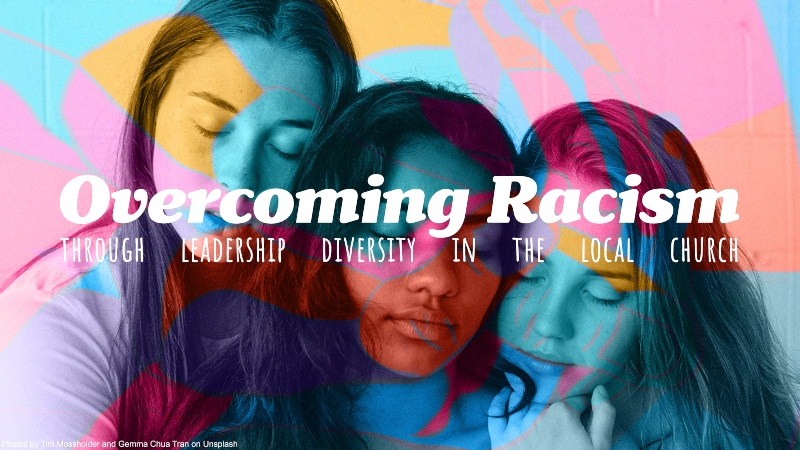Overcoming racism: through leadership diversity in the local church
By Kang-San Tan

There are various aspects of diversity: gender, cognitive, ethnic and generational which will enrich the body of Christ. Although we should promote leadership diversity in all aspects, our reflections in this article promote ethnic diversity within church or organisational leadership. To overcome racism in our societies, our churches need to model the “new humanity” in breaking racial barriers (Ephesians 2:15) within leadership representation. The church born in Pentecost was diverse (Acts 2:8-11) and their leadership was diverse (Acts 16:11-34). Why are so many churches in multicultural Britain today still so monochrome in our leadership representation?
Generally, most white church folks think of racism as individual overt acts of prejudice and discrimination. This is why they find it so offensive to be called racist when they have no overt racist intentions against minorities. However, one should think of racism in terms of injustices due to inequality of opportunities and power which systemically and also unconsciously privilege some over others. And one way to overcome racism is to have leadership diversity in our churches and organisations.
Achieving leadership diversity has to be intentional. Each local church needs to review, set clear goals and outline plans to increase leadership diversity within one or two years. Although we seldom articulate certain values openly, there could be resistance within British churches in welcoming minorities into church leadership. “They don’t understand our church culture,” we say, and by church culture, we mean white British culture. This implicit bias becomes the greatest barrier towards appointing non-white leadership.
Over two decades ago, I was invited to speak at the Global Connections UK gathering of 350 mission leaders and I urged for increased diversity among their 95 per cent white leadership. Today, the leadership of our mission agencies (including BMS) is still predominantly more than 90 per cent white, despite a rapidly changing realities of global Christianity. In my 10 years of service in Britain, I have personally known of countless stories of gifted diaspora leaders who felt that their gifts were not recognised in UK churches, institutions of training, as well as charities. I am aware that appointing a few BAME leaders does not transform the organisational culture overnight, but I would say it is a good and realistic start.
I am deeply grateful to BMS Trustees for taking risks in appointing me, an Asian, to provide leadership in a majority white British mission. I have much to learn. Likewise, BMS personnel are often chuffed by how quickly (less than a year?) churches from the Global South graciously welcome them to leadership positions even before they could speak the local language and fully understand the local culture. They too have much to learn from the gracious hospitality of non-Western churches.
In the 1980s, my church in Malaysia appointed a young American (a recent convert of two years) as elder of the church, even though our church membership comprised of Indians and Chinese. Would British churches do likewise in trusting global south leadership? I know some churches have made progress but if we ask our friends from minority cultures, they feel their voices are often excluded from the table of leadership.
Leadership diversity is not only to be implemented for churches in multicultural cities but for churches in white suburbs as well. In doing so, our churches model, disciple and nurture our young people in multicultural leadership. Then, our message of Jesus as the answer to racism in our divided society will be accompanied by credible demonstration of Christ in reconciling all ethnicities.
Therefore, friends, for all our lofty discussion on the complex issue of racism, why not consider my humble challenge to take risk: for example, resolving as a priority to increase diversity within our pulpit preaching rota and leadership representation by 20-30 per cent within the next two years? Otherwise, it won’t happen. Be biblical like the New Testament church and be truly British because our society is multicultural.
Kang-San Tan is General Director of BMS World Mission
Want to comment on this reflection? Please leave your thoughts via this contact form.
Some comments may be shared below.